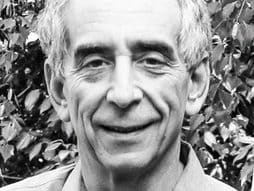Google Tech Talk: De Keuze Paradox
Barry Schwartz, professor Social Theory and Social Action Swarthmore College (US).
Psycholoog Narry Schwartz neemt in een voordracht voor Google Tech een centraal uitgangspunt van de westerse samenleving onder de loep: De vrijheid van keuze. Vrijheid van keuze is uiteraard ook verbonden met het zelfbeschikkingsrecht dat ook aan de basis van de westere samenleving staat.
Volgens Schwartz maakt keuze ons niet vrijer en zet het ons meer in een verlamde modus. Waardoor we niet gelukkiger worden en veel meer ontevreden door het leven gaan.
Psychologist Barry Schwartz takes aim at a central tenet of western societies: freedom of choice. In Schwartz’s estimation, choice has made us not freer but more paralyzed, not happier but more dissatisfied.
Why listen?
In his 2004 book The Paradox of Choice , Barry Schwartz tackles one of the great mysteries of modern life: Why is it that societies of great abundance — where individuals are offered more freedom and choice (personal, professional, material) than ever before — are now witnessing a near-epidemic of depression? Conventional wisdom tells us that greater choice is for the greater good, but Schwartz argues the opposite: He makes a compelling case that the abundance of choice in today’s western world is actually making us miserable.
Keuze – Choice
Infinite choice is paralyzing, Schwartz argues, and exhausting to the human psyche. It leads us to set unreasonably high expectations, question our choices before we even make them and blame our failures entirely on ourselves. His relatable examples, from consumer products (jeans, TVs, salad dressings) to lifestyle choices (where to live, what job to take, who and when to marry), underscore this central point: Too much choice undermines happiness.
Schwartz’s previous research has addressed morality, decision-making and the varied inter-relationships between science and society. Before Paradox he published The Costs of Living, which traces the impact of free-market thinking on the explosion of consumerism — and the effect of the new capitalism on social and cultural institutions that once operated above the market, such as medicine, sports, and the law.
Both books level serious criticism of modern western society, illuminating the under-reported psychological plagues of our time. But they also offer concrete ideas on addressing the problems, from a personal and societal level.
Audioboek – The audio book
Barry Schwartz is the Dorwin Cartwright Professor of Social Theory and Social Action in the psychology department at Swarthmore College, Swarthmore, Pennsylvania, where he has taught for thirty years. He is the author of several leading textbooks on the psychology of learning and memory, as well as a penetrating look at contemporary life, The Battle for Human Nature: Science, Morality, and Modern Life. Dr. Schwartz is married and has two children.
The lecture is available as audio book on Amazon.com
The Paradox of Choice: Why more is Less
Publisher: Brilliance Audio; MP3 Una edition (April 22, 2014)
Language: English
ISBN-10: 149151423X
ISBN-13: 978-1491514238
see also: https://www.amazon.com/s/ref=nb_sb_noss?url=search-

